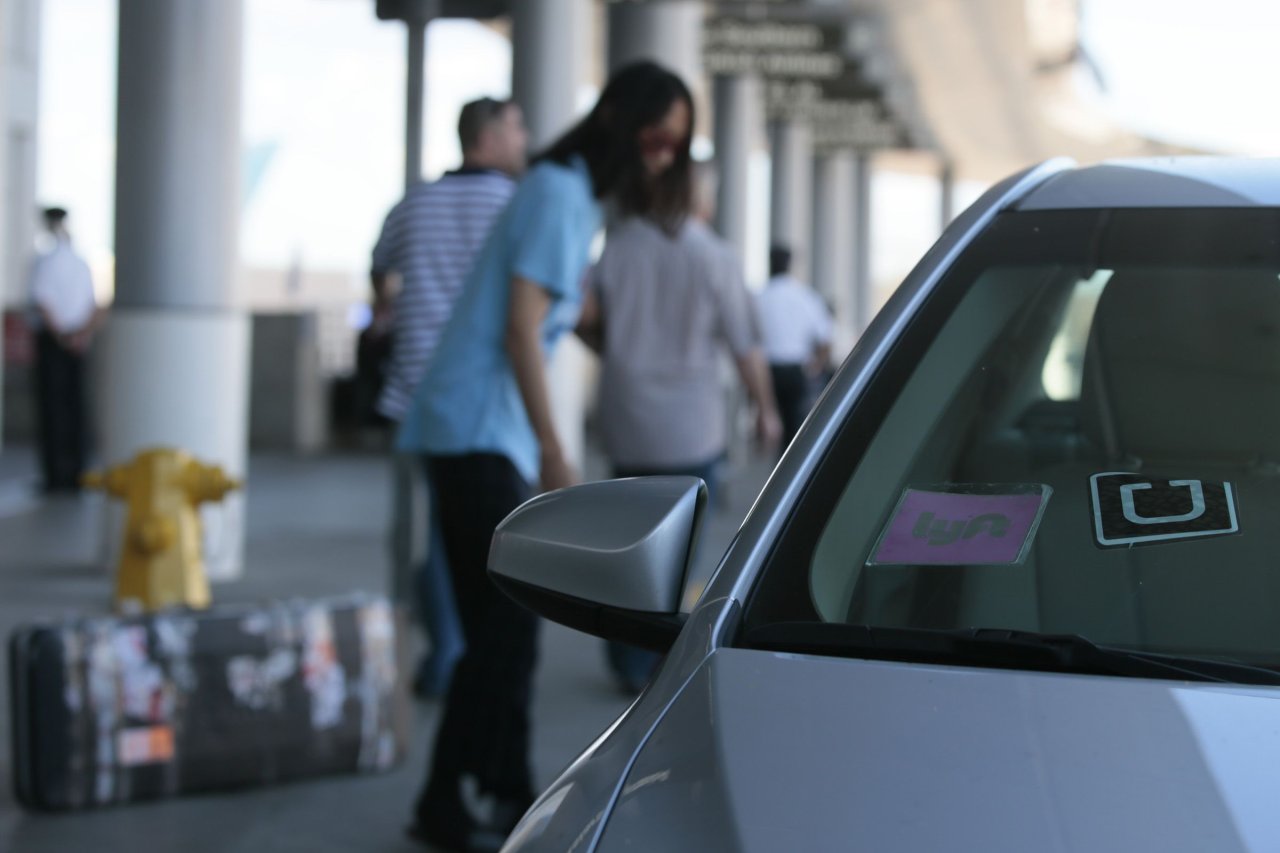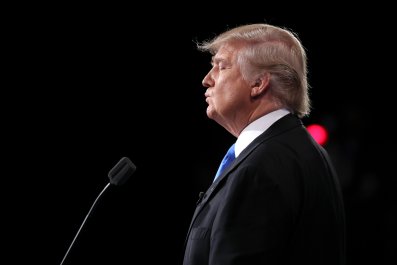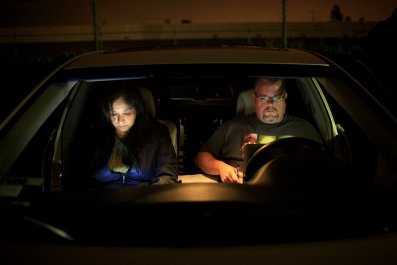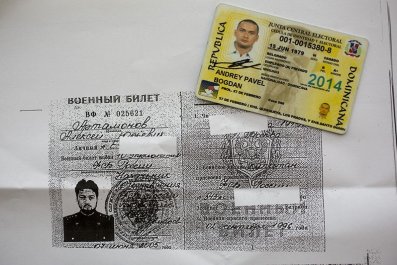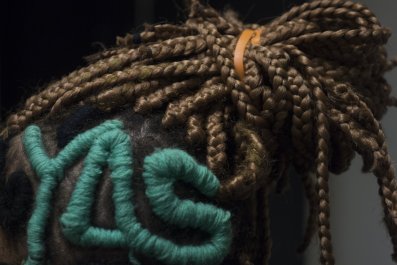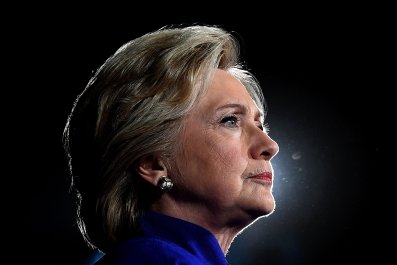It was a warm evening at the end of July, and LeRon Barton was bar-hopping in Santa Monica, California, when his good night soon came to an ugly end. Barton, who is African-American, and three friends hailed an Uber cab. The driver asked unexpected questions: "Are you going to Vegas?" (They weren't.) "Do you have any bags?" (They didn't.) He then said his Toyota Avalon was too small for four passengers. (It wasn't.)
An altercation ensued when the driver said, "If you all want to find another driver, you can," followed by an expletive. He then drove off, leaving Barton and his friends without a ride. Was Barton unlucky or the victim of discrimination?
A new study published October 31 by the National Bureau of Economic Research, a think tank in Cambridge, Massachusetts, attempts to answer that question. The study, based on an analysis of nearly 1,500 Uber and Lyft rides in Boston and Seattle, describes how African-Americans booking a trip on the popular ride services waited up to 35 percent longer and got more cancellations than white riders did. The highest wait times were experienced by men trying to book UberX, Uber's basic service, in sparsely populated areas in Boston. They also experienced the highest cancellation rates. While the findings may sound alarming, a closer look reveals that passengers, regardless of race, waited fewer than five minutes for a ride.
However, the study suggests that African-Americans face discrimination—but only from some drivers. "It's important to emphasize that this is not Uber and Lyft discriminating against passengers—this is individual behavior," says Stephen Zoepf, executive director of Stanford's Center for Automotive Research and one of the researchers involved in the study.
Taxi drivers refusing to stop for certain passengers, or refusing to take them to particular neighborhoods, have provoked outrage for years. The authors of the new study say they are the first to find similar discrimination by Uber and Lyft drivers.
Both companies deny the discrimination charge and argue that their services help minority communities. "Because of Lyft, people living in underserved areas, which taxis have historically neglected, are now able to access convenient, affordable rides," says Adrian Durbin, who's in charge of policy communications at Lyft.
"We believe Uber is helping reduce transportation iniquities across the board," says Rachel Holt, head of Uber's North American operations. "But studies like this one are helpful in thinking about how we can do even more."
Uber and Lyft carry as many as 19.4 million riders in the U.S. each month. Their popularity derives largely from their convenience and from fees that are often lower than cab fares. Passengers key in their desired destination using a smartphone app, which matches them with drivers in the area. Lyft drivers can see a passenger's name and profile picture before they decide to accept a ride. This information is available to Uber drivers only after they hit "accept." The apps are tied to credit card information, so travelers never have to fish around their wallets, making the ride an often seamless affair.
While these reinvented taxi services may have eliminated the need for cash, the new research suggests they've been less successful at stamping out discrimination. In Seattle, African-American travelers with Uber and Lyft had to wait longer for their trip requests to be accepted, although the difference, on average, was only a matter of seconds. When it came to wait times with these services, black passengers had to wait approximately 30 percent longer than their white counterparts. This discrimination was statistically significant only for UberX passengers, not those using Lyft.
Among some important findings: Researchers discovered that travelers in Boston with African-American-sounding names like Aisha, Darnell and Rasheed were twice as likely to have an UberX driver accept their ride request and later cancel it. It happened about 10 percent of the time with African-Americans, compared with half that for passengers with names like Allison, Brad and Todd. For African-American males trying to get a ride in sparsely populated areas of Boston, cancellations tripled.
The researchers based their conclusions on two separate, but related, experiments. In Seattle, a team of white and African-American research assistants spent six weeks requesting rides along predetermined routes in neighborhoods that varied by income level, geographic makeup and population density. A similar team in Boston did the same, except each research assistant requested rides using two different names: one that was "distinctively black" and the other more "white sounding." A total of 1,341 rides were made: 668 in UberX cars and 673 in Lyft cars.
"The question really is: Is this better than what we have now in terms of the conventional taxi system?" says Zoepf. If the measure is success in hailing cabs, the ride services are no better, the researchers say. Part of the experiment also involved hailing traditional taxis. White research assistants managed to get the first cab they hailed 60 percent of the time. African-American travelers succeeded only 20 percent of the time. "The one thing we're not claiming is that Uber and Lyft are better than the status quo," says Christopher Knittel, an economics professor at MIT and one of the paper's co-authors.
Zoepf says what's really needed to take the study and its findings one step further is for the ride-sourcing companies to analyze the "treasure trove" of internal data they have, such as information on driver characteristics, which areas the drivers choose to serve and how this affects wait times. "It really demands further study by folks who have access to the data directly," he says.
The study's authors have a few suggestions for Uber and Lyft. For example, they recommend using unique pass codes to identify drivers and passengers, rather than using their names and pictures. And they propose making it harder and more costly for drivers to cancel on riders. With policies such as those, Lyft and Uber drivers could be persuaded to treat African-American riders more fairly—and put the yellow cabs to shame.


